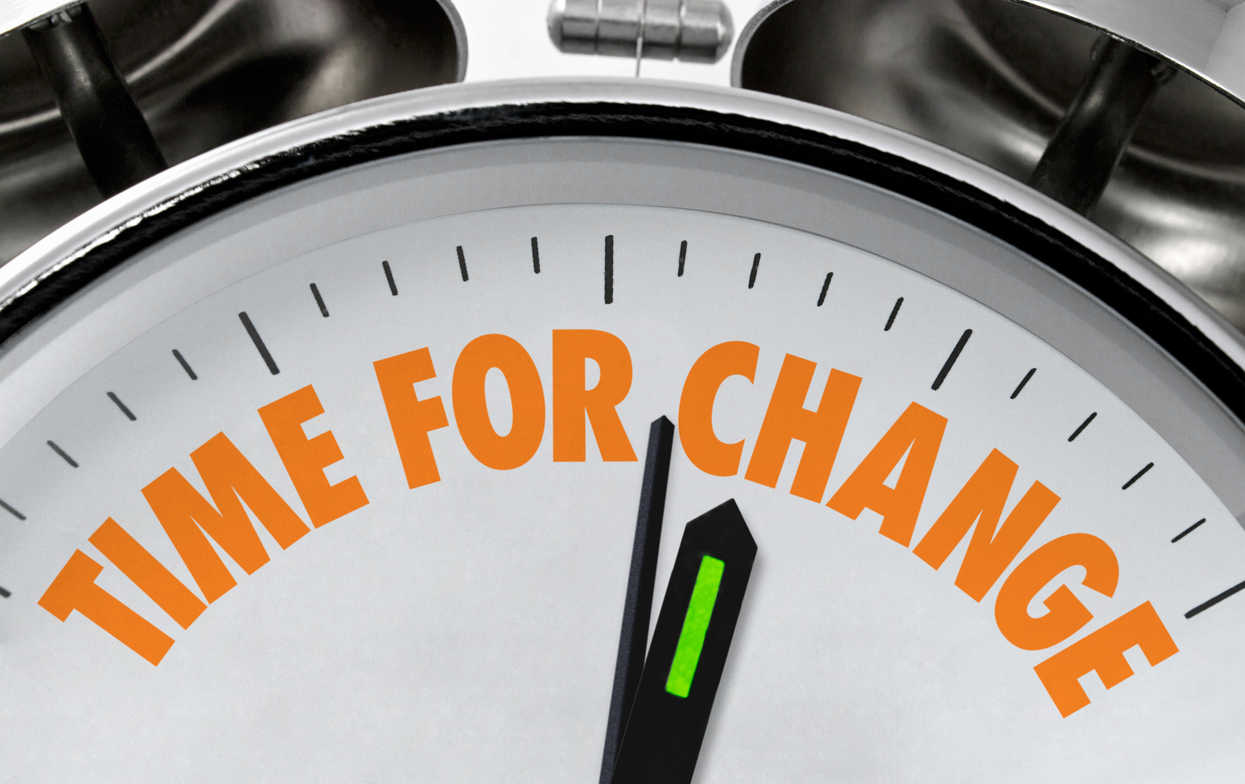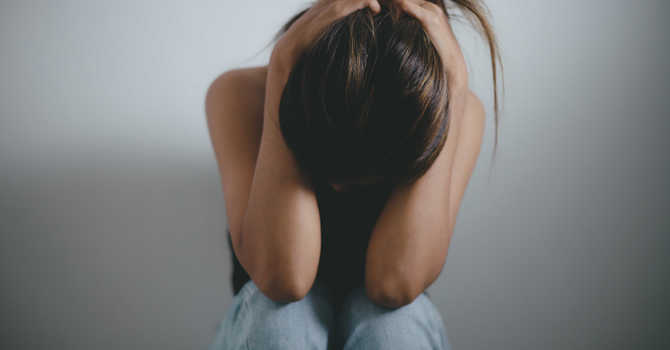
Although the road to recovery may be difficult, the appropriate combination of treatment, support, and self-care can help people dealing with addiction begin or maintain their recovery.[1]
Risks to Recovery
Several factors are contributing to increased drug use and jeopardizing recovery including stress, anxiety, and depression; social isolation; psychological trauma; and loss.[2]
Stress, Anxiety, and Depression
Stress, anxiety, and depression are closely connected mental health issues that negatively impact our health, longevity, relationships, social life, and work life.
Stress is a mental and physical response to a situation such as taking a test at school, moving to a new place, or having an overly demanding job. It can be positive (e.g., inspiring us to achieve goals) or negative (e.g., causing us to lose sleep). Once the situation is resolved, the stress goes away. Anxiety is a response to stress. It is an emotional state that generally causes a constant feeling of dread. It can occur even when there is no current stressor or threat. [3]
In addition to anxiety, stress can cause anger, detachment, frustration, guilt, hopelessness, and moodiness as well as physical symptoms including dizziness, hair loss, headaches, muscle tension, and teeth grinding.[4] Chronic stress and anxiety can lead to problems with our cardiovascular, digestive, immune, and reproductive systems and cause anxiety disorders and/or depression.
Depression is a mood disorder that has many symptoms including aches and pains, changes in appetite, despair, feelings of guilt and worthlessness, loss of interest, low energy, persistent sadness, and poor concentration.[5] The impact of depression on overall health and quality of life can create or exacerbate anxiety.
Ways to Cope
There are a variety of ways to manage stress, anxiety, and depression. Strategies to cope with stress and anxiety can also alleviate depression and vice versa.[6] [7]
Stress and anxiety
· Eat a balanced diet that includes regular meals to prevent low blood sugar.
· Use breathing exercises and relaxation techniques to calm down.
· Exercise daily such as running, swimming, walking, or yoga to help you relax.
· Work on getting more sleep if needed.
· Talk about what you’re going through with a family member, friend, or healthcare professional. Joining a support group is also an option.
· Don’t try to do too many things at one time. Set small, easily achievable goals and work on better managing your time.
· Try not to focus on the things you can’t change and instead work on improving how you feel.
Depression
· Do things that you enjoy.
· Practice self-compassion.
· Take a break from your normal routine to relieve stress and revitalize yourself.
· Work on remaining hopeful about your ability to feel better.[8]
Social Isolation
The pandemic has made it necessary for us to physically distance ourselves from others. But the loneliness and social isolation this measure has caused are increasing stress, anxiety, and depression among the population.
Ways to Cope
Although social isolation can be hard to endure, the following strategies can help you minimise its effects and continue to have joy in your life. [9]
Stick to a daily routine.
Waking up and going to bed at the same time each day and planning the day’s activities can help you establish normalcy, achieve goals, better manage your time, and maintain control.
Stay connected with others.
Connecting with family, friends, and others through emails, instant messaging, letters, phone calls, texts, social media, or video conferencing can help you feel less alone, happier, and more hopeful.
Stay active.
When we’re stuck at home, it can be easy to become physically inactive. But staying active can help us alleviate the lethargy and poor physical condition isolation can create. Taking daily walks or using a treadmill, practising yoga or Tai Chi, or working out at home can help you boost your energy level, improve your mood, and increase your physical fitness.
Engage in meaningful activity.
Bringing more meaning into our lives can relieve boredom, improve our skills, and increase our sense of belonging. So doing something meaningful each day such as taking an online class, volunteering, or practising a faith—for even a short amount of time—can create purpose in your life and strengthen your self-esteem.
Be creative.
Expressing ourselves through creativity gives us a way to channel our emotions, stay in the present moment, distract from our problems, have some fun, and feel a sense of accomplishment. Cooking, completing home projects, colouring, crafting, dancing, gardening, painting, and writing are just some of the ways to engage in creative expression.
Trauma and the Pandemic
Research indicates that epidemics such as SARS, MERS, and Ebola caused post-traumatic stress disorder (PTSD) among victims’ families, survivors, medical professionals, and members of the general public. Psychological trauma is an emotional response to an extremely distressing experience. It can cause several symptoms including denial, grief, headaches, nausea, and shock.[10] For some, the symptoms of trauma persist and lead to PTSD, which causes the following symptoms:[11]
· Avoiding the people, places, and things associated with the experience
· Developing physical symptoms such as chest pains, dizziness, and stomach aches
· Experiencing panic attacks
· Feeling emotionally numb
· Having problems with sleep and concentration
· Re-experiencing the event through flashbacks or nightmares
PTSD also places people at higher risk of becoming depressed, having problems managing anger, and misusing alcohol and other drugs.[12]
Ways to Cope
Because PTSD is an anxiety disorder, the coping strategies discussed earlier can help sufferers calm their minds and improve their well-being. The following do’s and don’ts can also help them cope with the condition:[13]
Do
· Work to maintain a normal routine.
· Try to decrease responsibilities.
· Be careful because accidents are more common after distressing events.
· Stay connected with trustworthy people.
· Try not to feel shame about thoughts and feelings because they are normal responses to a traumatic event.
Don’t
· Take on extra responsibilities if possible.
· Keep feelings bottled up.
· Expect the memories to fade right away.
· Beat up on self.
· Put off getting help from a mental healthcare professional if coping becomes especially difficult.
Loss
The pandemic has changed the way we live, caused tremendous suffering, and led to many types of losses—especially the loss of lives. The magnitude of the individual and collective losses has created unimaginable grief. Bereavement can cause anger, anxiety, disbelief, fear, guilt, sadness, and shock as well as poor concentration and difficulty making decisions. Isolation and physical symptoms including changes in appetite, headaches, muscle pain, and sleep problems can also occur.[14]
Ways to Cope
It is normal to have intense feelings and responses to grief. Taking care of ourselves can help us cope with the grief that loss and change create.[15] Three essential ways to take care of yourself during the grieving process are listed below:[16]
Face your feelings.
Suppressing our feelings may provide some relief but this could eventually lead to unresolved grief, which can cause anxiety, depression, physical health problems, and substance abuse. Talking about your feelings and thoughts with a family member, friend, or therapist; writing them down; or expressing them through art or music can help you accept and work through them.[17]
Try to continue to pursue interests and hobbies.
Continuing with interests and hobbies can help you maintain your routine, connect you with others, and bring joy into your life.
Maintain your health.
Eating a healthy diet, exercising regularly, and getting enough sleep can help you better cope with your emotions.
Professional Treatment Options
Self-care and seeking support from family, friends, and others are essential for managing addiction. But, if you’re finding it difficult to get through each day, fear that you might relapse, or are sinking deeper into addiction, then getting professional help may be the key to turning things around and getting better.
Therapy and Counselling
Therapy can involve one-to-one, group, or family sessions with a therapist. It is typically intensive at the beginning of treatment. As your symptoms improve, the number of sessions gradually decreases. [18] There are several styles of therapy that differ based on three variables:
· The focus of the therapy such as learning more about yourself or working to overcome a particular problem
· The techniques the therapist uses during your sessions
· The academic theories associated with the therapy
Many therapists have training in different styles, so they can tailor the therapy to your needs.[19]
Counselling can (a) help you identify and change the attitudes and behaviours that contribute to your addiction, (b) strengthen your life skills, and (c) complement other treatments. [20]
Residential Treatment Programs
Rehabilitation programs help participants remain drug-free and successfully return to their family, professional, and social responsibilities. Fully licensed facilities provide a safe living environment, 24-hour care, and medical assistance and intervention.
Short-term residential treatment
Short-term facilities provide detoxification and intensive counselling to prepare individuals for longer-term treatment in therapeutic communities.
Therapeutic communities
Therapeutic communities provide 6 to 12 months of treatment in which staff and community members help participants change their attitudes and behaviours about drug use.
Recovery housing
Recovery housing provides short-term, supervised residential treatment to help participants undertake responsibilities and adapt to independent living without the use of substances. They receive advice about managing finances and finding jobs as well as connections to community support services.[21]
Overcome the Challenges of Addiction
Managing addiction is challenging under the best of circumstances. Covid-19, the losses it has caused, and the problems that stem from it have made living with addiction and recovering from it even harder. If managing your addiction has become overwhelming, a licensed mental healthcare professional can help you prevent relapse or begin your recovery. At Life Counsel, we provide a safe and welcoming place for you to talk about what you’re going through and find solutions to your problems.
[1] Mental Health Problems – An Introduction,” Mind, accessed March 7, 2021, https://www.mind.org.uk/information-support/types-of-mental-health-problems/mental-health-problems-introduction/recovery/.
[2] Zach Snitzer, “10 Common Relapse Triggers for Addiction during COVID-19,” Maryland Addiction Recovery Center, accessed March 7, 2021,https://www.marylandaddictionrecovery.com/10-common-relapse-triggers-for-addiction-during-covid-19/.
[3] “I’m So Stressed Out! Fact Sheet,” National Institute of Mental Health, accessed March 5, 2021, https://www.nimh.nih.gov/health/publications/so-stressed-out-fact-sheet/index.shtml.
[4] “When Stress Leads to Anxiety and Depression,” Beyond Blue, accessed March 5, 2021, https://www.beyondblue.org.au/personal-best/pillar/wellbeing/when-stress-leads-to-anxiety-and-depression.
[5] “Depression,” Mental Health Foundation, accessed March 5, 2021, https://www.mentalhealth.org.uk/a-to-z/d/depression.
[6] “Anxiety, Fear and Panic,” NHS, accessed March 6, 2021, https://www.nhs.uk/conditions/stress-anxiety-depression/understanding-panic/.
[7] “Stress,” NHS, accessed March 6, 2021, https://www.nhs.uk/conditions/stress-anxiety-depression/understanding-stress/.
[8] “Depression in Adults,” Royal College of Psychiatrists, accessed March 6, 2021, https://www.rcpsych.ac.uk/mental-health/problems-disorders/depression.
[9] Arlin Cuncic, “How to Cope With Loneliness During the Coronavirus Pandemic,” Very Well Mind, accessed March 6, 2021, https://www.verywellmind.com/how-to-cope-with-loneliness-during-coronavirus-4799661.
[10] Shaziya Allarakha, “Three Types of Trauma,” Medicine Net, accessed March 6, 2021, https://www.medicinenet.com/what_are_the_3_types_of_trauma/article.htm.
[11] “Symptoms - Post-traumatic Stress Disorder (PTSD),” NHS, accessed March 6, 2021, https://www.nhs.uk/conditions/post-traumatic-stress-disorder-ptsd/symptoms/.
[12] “Post-traumatic Stress Disorder (PTSD),” Mental Health Foundation, accessed March 6, 2021, https://www.mentalhealth.org.uk/a-to-z/p/post-traumatic-stress-disorder-ptsd.
[13] “Coping with Trauma,” Ready Scotland, accessed March 6, 2021, https://ready.scot/respond/coping-with-trauma.
[14] “Change, Loss, and Bereavement,” Mental Health Foundation, accessed March 7, 2021, https://www.mentalhealth.org.uk/coronavirus/change-loss-and-bereavement.
[15] “Change, Loss, and Bereavement.”
[16] Melinda Smith, Lawrence Robinson, and Jeanne Segal, “Coping with Grief and Loss,” Help Guide, accessed March 7, 2021, https://www.helpguide.org/articles/grief/coping-with-grief-and-loss.htm.
[17] “Change, Loss, and Bereavement.”
[18] Adam Felman, “What are the Treatments for Addiction? Counseling and Behavioral Therapies,” Medical News Today, accessed March 7, 2021, https://www.medicalnewstoday.com/articles/323468#counseling-and-behavioral.[19] “Talking Therapy and Counselling,” Mind, accessed March 5, 2021, https://www.mind.org.uk/information-support/drugs-and-treatments/talking-therapy-and-counselling/types-of-talking-therapy/
[20] Felman, “What are the Treatments.”
[21] Adam Felman, “What Are the Treatments for Addiction? Rehabilitation Programs,” Medical News Today, accessed March 7, 2021, https://www.medicalnewstoday.com/articles/323468#rehabilitation-programs.

Stathi Anthopoulos
Contact Me



